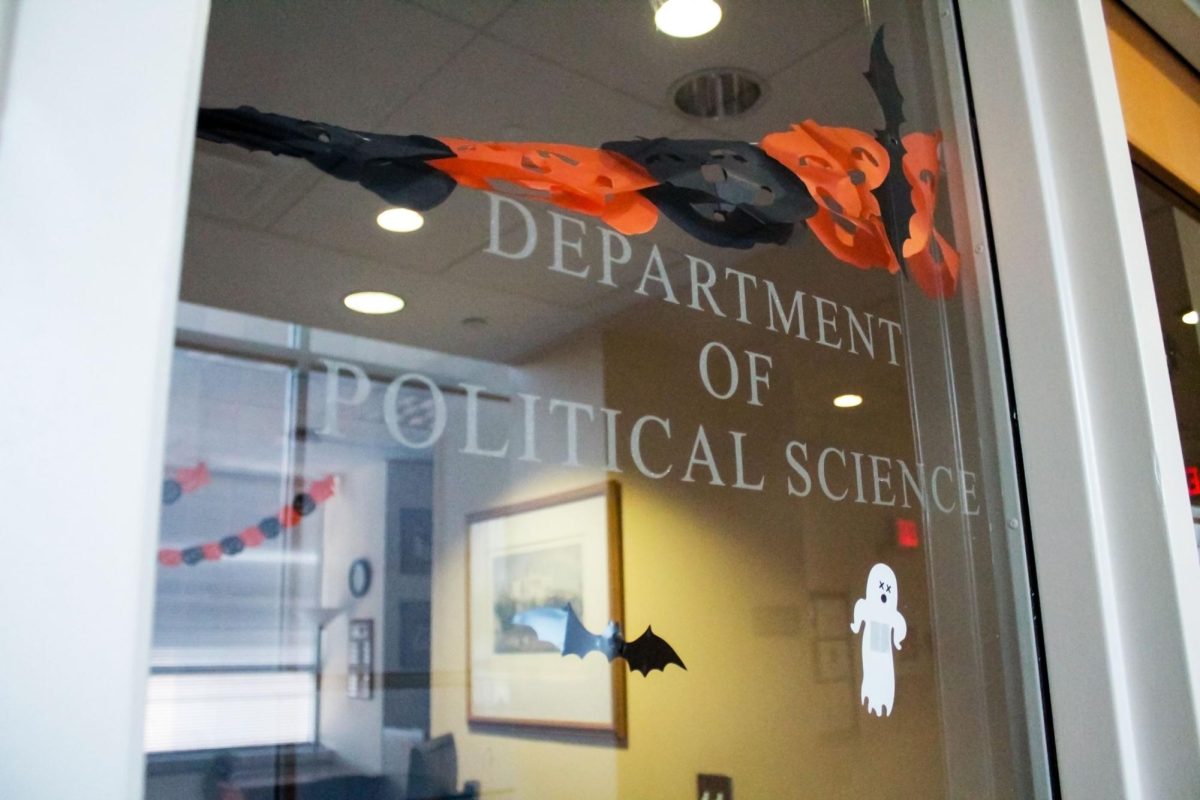The Department of Political Science will launch a master’s degree in quantitative social sciences next fall.
Faculty involved in the program said they aim to recruit 20 students for the first cohort of students for the two-year program, which may be modified or shortened in the future. Brandon Bartels, a professor of political science and the program’s director, said the high demand for knowledge and “cutting edge skills” in fields like data analytics, data science and quantitative data analysis was the impetus for the new degree, which will prepare students for jobs in government, think tanks, academia, nonprofits and data science.
“We assume that some people will be coming straight from undergrad, perhaps some people might be coming from a current job,” Bartels said. “They’re going to bring with them an interest that they have already, and they can apply these tools for advancement and career success.”
Bartels said the program will train students to answer research questions and address relevant problems in the social science disciplines that impact policy, institutions, democracy, demography and economics. It will feature a partnership between the political science, economics, sociology and statistics departments to allow students to take classes across disciplines, he said.
“That involves engaging with social science theories, like I said, the interdisciplinary exposure to how different disciplines like economics handles things differently than political science,” Bartels said.
Michael Miller, a professor of political science and director of graduate studies for the department, said the Columbian College of Arts & Sciences officials introduced the idea and officials thought the political science department would be a good home for the program. He said himself, Bartels, Eric Lawrence — the chair of the political science department — and Kimberly Gross, CCAS’ vice dean for programs and operations, worked closely to develop the program since the summer.
Bartels said the program will offer and require four new classes including a seminar in quantitative sciences, a data visualization course in synthesizing and presenting visualizations of information, a course in probability and statistical modeling and a capstone course to be taken in the last semester. He said the program will push students to analyze data quantitatively and qualitatively, which are necessary skill sets for anyone considering pursuing a career or a doctorate degree in data analysis.
He added that the program, which consists of 30 credits total, will also require electives on topics like elections, public opinion and political violence, so the skills can be applied to “real-world scholarly topics” with “real-world implications.”
“You only have to take two courses in that, and that’s sort of to institutionalize for students to see the application of those tools to certain contexts,” Bartels said.
He said because major subjects in data science include causal inference — determining if two variables have a cause and effect relationship — surveys, experiments and machine learning, the program seeks to introduce students with probability, statistics and quantitative social science skills as well as data modeling methods like regression modeling and multilevel and longitudinal modeling.
The program will require students to employ statistical computing software widely used across industries like R, Python, Stata and SQL, Bartels said. He said the program may be a “stepping stone” for students who plan to seek a doctorate in political science or economics due to the importance of efficient data analytic tool use and problem-solving skills in these fields.
He said the program is “a little more substantive” than other data science programs at GW — like CCAS’ data science program, the School of Engineering and Applied Science’s data analysis program and the School of Business’ programs revolving around analytics — due to it not being as computer science-focused as other programs and instead more geared toward social science research questions.
Miller said students are given the freedom to craft their “own adventure” through choosing specific tracks to individualize the education to fit a student’s desired career path.
“There’s so much demand in the D.C. area for good data analysis,” Miller said. “I think it is a huge advantage that we’re located in D.C.”





